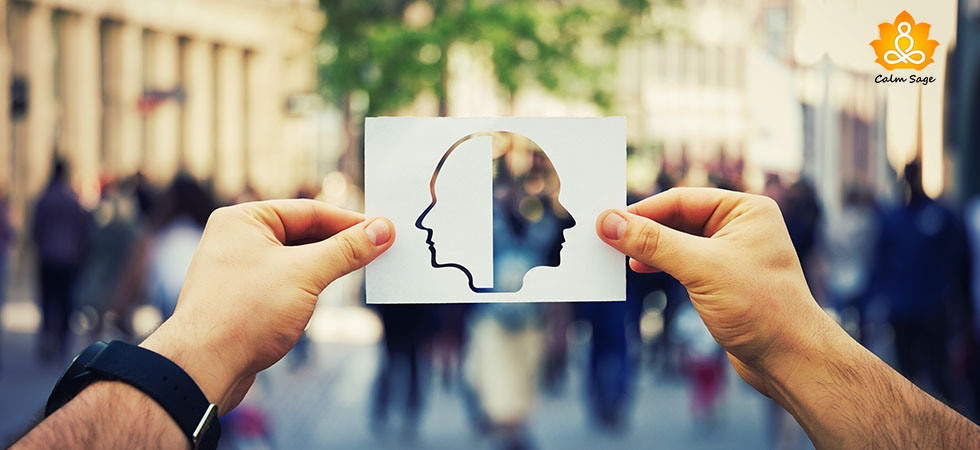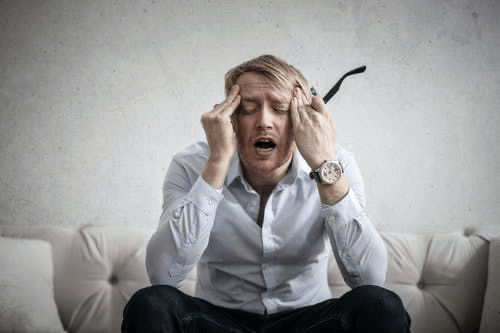What Is Delusional Disorder? Signs, Symptoms & Treatment

Delusional disorder, also called as Psychosis, is a condition in which a person cannot differentiate between real and imaginary situations. This causes delusions which are often reinforced by wrong interpretations of present events. Such delusional state may also come along with hallucinations and they may hear voices, see figures or feel that they have bugs inside their skin.
NOTE: There is a substantial difference between psychotic disorders and delusional disorder as psychotic disorder as people with psychotic disorder may feel so delusional that their lives are completely disrupted. Although delusions are common for many disorders, it is a rare condition.
People going through delusional disorder may socialize and function in a normal manner and do not usually behave in a bizarre manner.
Signs Of Delusional Thinking
Despite contrary evidence in real life, the person doesn’t believe in it and keeps thriving in the perception they are diving into. Such thoughts may not be very bizarre in some cases but very bizarre and completely related to the fantasy world, even practically impossible in others.
What Are The Types Of Delusional Disorder?
Understand types of delusional disorder according to their themes for easy diagnosis and treatment.

1. Erotomanic: Such delusion makes a person feel that someone from a higher social standing like– celebrity or politician– is in love with them. The person may want to communicate with the celebrity or show different gestures when they are on television.
2. Grandiose: People with this delusion disorder believe that they have distinct knowledge, power, talents and fame despite any evidence.
3. Jealous: Jealous makes a person feel that their partner or spouse is unfaithful and cheating on them. Even if their partner is using the restroom, they believe that their partner is meeting someone else.
4. Persecutory: In this case, the person feels being detected or a feeling of getting harmed bothers them. It is common for them to complain to the legal authorities and ask for protection.
5. Somatic: The delusional thought makes one feel that the person has physical problems or medical issues. For example, the bugs are creeping under the skin or some parasites are living in their body.
6. Mixed or Unspecified: People with this type of delusional disorder may have a combination of above mentioned disorders and can’t be categorized into one alone.
What Are The Common Causes Of Delusional Disorder?
It is to be noted that the exact cause of delusional disorder is not known. However, researchers have yet divided the causes into possible sections.
1. Genetic: Delusions are most common with people whose family members may have had similar issues or dealing with schizophrenia. The tendency of delusions are transferred from parents to their children.
2. Biological: The imbalance of brain chemicals, also called neurotransmitters, has been linked to delusions as transmission of messages becomes a typical process.
3. Environmental or psychological: Delusional disorder may show up because of excessive stress. At the same time, if you are consuming alcohol and abusing yourself with drugs, your condition may worsen.
How Is Delusional Disorder Diagnosed?
If your physician feels that you are having symptoms of delusion disorder then he will run through your medical history and may ask you to perform certain examinations. Diagnostic tests like X ray and blood tests could be expected.
Once the physical issues are ruled out, the person is referred to a psychologist or psychiatrist or other mental health professionals who are trained to diagnose and treat the condition. The mental health professional uses specially designed tools to interview and assess the problems and prepares a report, based on the diagnosis.
It is important to remember that diagnosis is made on the criteria mentioned in Diagnostic & Statistical Manual of Mental Disorders (DSM-5).
Also Read: An Overview of Generalized Anxiety Disorder: DSM-5
Treatment Of Delusional Disorder
Seeking professional help is the best way to treat delusional disorders. One can seek help by visiting the health expert in persona or message us at info@calmsage.com.
The most challenging part here is that the person dealing with delusional disorder doesn’t feel that he or she has any such problem due to delusions. This is why family members or loved ones have to take the step and consult the doctor on an immediate basis.
Therapy: The therapy may include cognitive behavioral therapy where an individual is taught to balance their behavior by removing negative thoughts and substituting them for positive ones. At the same time, family therapy could also prove to be useful as family members understand what the person is dealing with and help them throughout.
Medications: Certain antipsychotic drugs, antidepressants or tranquilizers are provided to the person according to the particular medical condition.
Frequently Asked Questions
Q1. What are complications of delusional disorder?
Apart from delusions and hallucinations, an individual can develop common issues like depression, violence, isolation or even legal problems.
Q2. What is the outlook for people with delusional disorder?
The person undergoing treatment may expect relief from chronic conditions and may even recover completely. However, some people may find certain episodes during recovery but these episodes end up after sometime.
Conclusion
We care for you! If you or your loved ones are going through delusional disorder or any mental disorder, connect with an expert today by emailing us at info@calmsage.com.
Stay healthy! Stay happy!




















